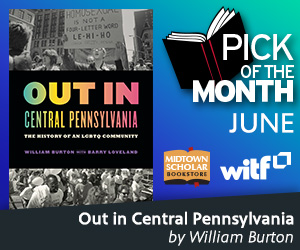Ev’s Story
-
Keira McGuire
“One more moment for me … can mean only one more moment until everything isn’t so dark anymore.”
-Ev Reheard
Suicide Attempt Survivor
Hi, my name is Ev Reheard, and I am a Korean-American suicide attempt survivor.
I knew that I had suicidal feelings around puberty.
I’ve always had a very overactive imagination. So just lingering too long on ideation, just having thoughts of how that would be possible or easiest or the least painful.
I don’t have childhood trauma of my own. I don’t have anything that I was running away from.
I would say that I grew up in a part of the country and then also my other half of my family is in Korea. So those two very traditional backgrounds made it unwholesome to talk about these topics, to ask for the help that I needed to get really specific about what I was feeling. I’d get shut down pretty quickly about what was appropriate.
It felt like a mental reset button on a video game, that if I could just hit that button and leave this physical presence, that maybe I could have a fresh, clear start from all of the heaviness of the feelings.
Probably when I was 17, 18 years old, it persisted. It stayed with me.
The first time I made an attempt was the day before my 22nd birthday.
I found some pain killers in the house that I had done my research about how to not take too much so you start throwing up or like whatever it was that I thought I had figured out, and I put my head down on the pillow, really just hoping.
But I most definitely did get very, very sick for long enough that after, it persisted, there was nothing left in my stomach and I had to go to the emergency room.
I had to talk to a therapist there to convince them to let me leave without being held longer. And it’s actually incredible how easily they let me leave and go back to my life and never talk to anyone about it ever again without any follow up.
I came to Temple in Philadelphia, and they had mental health help for their students, so I started seeing a therapist at the university.
I wasn’t telling her enough. I was telling her the symptoms, but I wasn’t telling her everything going on underneath that was making me be impulsive. That was pushing me into decisions that weren’t as good.
I told her one day about it, about being suicidal and was like, You know what? I feel better now that I said it out loud and it’s fine.
But at some point, I was going through a really bad breakup, and I just hit one of those walls of not being able to transition to the unknown of what was going to happen next. And I had a really bad week of just fighting all of the anxiety, not being able to get a night’s sleep for all of that time. And there were a few days of just running around my loft at that point, trying to find something fatal in my house.
This was when I was a speech therapist and I had a little girl that I would see and her mom had been telling me that she was going to start working at Friends Hospital in Philadelphia and why she wanted to work there in particular.
And I got up the next morning and called her and asked her if she got the job. And I don’t know how she knew from hearing me that morning, but she asked me if I was suicidal. And she asked me if I was ready to come in and she sent me a car, to come and take me there, so that was how I ended up checking myself in for a week.
And at that point in time, I’ve really let down all of my guards, all of my walls and really let everyone know exactly what I was thinking and feeling, for the most part.
So I was told that I needed dialectical behavioral therapy, and I eventually just Googled it and saw that it was designed specifically for borderline personality disorder.
I would say that it is the way we’re born, that it allows us to feel things very, very deeply.
I would say that it makes us apt to fall very heavily, deeply in love and have very strong emotions towards other people.
I would say that the highs might feel higher and the lows might feel lower. And once we’re low, we don’t know how to get ourselves back out by ourselves sometimes.
It has been helpful to see the label of BPD.
Having that information to use and put into my daily life of saying like, it’s OK, you are thinking something up that isn’t happening right now. And if we can think about something else, then we’re going to be able to get through this detour.
I tell people it’s kind of like building a detour after you’ve already had this paved road in your mind for 20 years, and you just have to put up huge detour signs and say, you can’t go this way anymore. It’s dangerous this way.
It can be extremely painful to be in those moments again and look back and feel so alone and so desperate. Because before I went to the hospital, I was calling everyone in my phone and not getting the answers I was looking for.
Cast a wide net is the phrase I like to tell everyone, especially people, that I barely know who would like to confide everything that they’re not yet ready to say to somebody else.
The first person you talked to might not be the person who has your answers, and if you’re telling them very emotionally heavy things, they might not be able to answer the phone every time. So you’re going to need lots of people to call and eventually either one of those people or somebody that they direct you towards is going to be a person who can help you.
Singing: “I want you to be happy no matter what. Oh, but I’m not…”
I started playing music shortly after I finished graduate school.
I ended up starting to hang out at some local open mikes and meeting local musicians and just seeing a whole nother side of music that I never knew was so accessible and I could participate.
It really was just a huge shift after I started playing my music in front of people and had this realization from people expressing to me what they were relating to in the music that I was writing songs of depression. I was writing songs of pain and heartache that those were the things I needed to let out.
I was really astounded by how they just responded so differently to the song, it changed its meaning for me and made me feel like they, ah, they understood that I really wanted all of us to get to another day.
I still think about suicide.
I have had to deal with a lot of not wanting to be alive since my mother passed this year because there is some sense that then I don’t have to live without her. And that’s really tricky. That’s really hard.
When I had told my family I was suicidal, what I was going through to try to heal, she was the person who showed up for me and said, It’s OK, you can do this now and you can start your life over here now. Don’t wait until mid-life and start the new life you want for the rest of your life.
Life today is in progress. If I can just keep doing this and sharing this, that’s reason enough to keep going.
One more moment for me, it can mean only one more moment until everything isn’t so dark anymore, but it can also mean there is one more moment of light just around the corner.
Singing: “You can stay one more day. You can stay one more day stay. Then another one again tomorrow, and another one again tomorrow, and another one again tomorrow. Would you stay, one more day?”
One More Moment was developed with support from:






